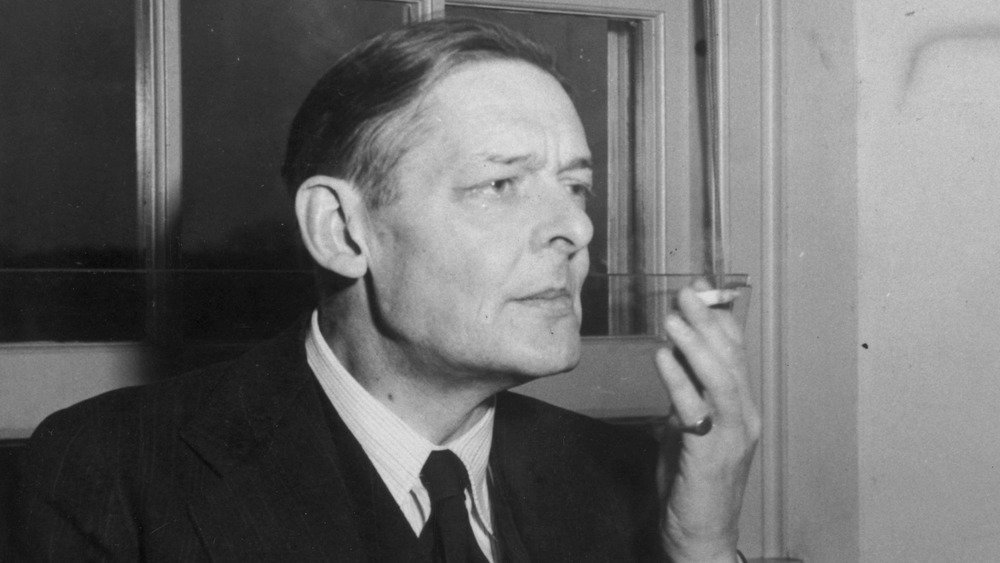This Was T.S. Eliot's Odd Obsession
T.S. Elliot is best known for his stunning works of literary masterpiece like The Waste Land and The Love Song of J. Alfred Prufrock. Born in St. Louis, Missouri, Eliot moved to London in 1914, at the tender age of 25. He quickly became a part of literary society there, associating with remarkable members of the famous Bloomsbury Group, like the writer Virginia Woolf and the art critic Clive Bell.
By 1922, he had already published The Love Song of J. Alfred Prufrock, and his burgeoning career was deemed "worth watching" by none other than the poet Ezra Pound, per First Things. At some point before this year, however, Eliot had developed a rather strange obsession.
According to The Guardian, Elliot had a habit of applying green makeup and red lipstick to his face every day before he wrote. It wasn't simply a private practice. He wore his green make-up out in public, which, predictably, caused tongues to wag. Clive Bell gossiped to Virginia Woolf's sister, Vanessa, that the green powder made Eliot look "interesting and cadaverous." Virginia Woolf herself speculated his choice arose out of "a craving for sympathy in his [marital and financial] unhappiness," reports the Free Library.
Eliot's face painting was seemingly out of character
Other than his choice of cosmetics, Elliot wasn't a known eccentric, which makes his aesthetic decisions all the weirder. In fact, it was so unusual, it prompted the poet Osbert Sitwell to remark, "I was amazed to notice on his cheeks a dusting of green powder — pale but distinctly green, the colour of a forced lily-of-the-valley. I was all the more amazed at this discovery, because any deliberate dramatization of his appearance was so plainly out of keeping with his character, and with his desire never to call attention to himself," via the Free Library.
Eliot himself never gave any explanation for his odd obsession with coloring his face green. His biographer, Peter Ackroyd, had a slightly different take on his behavior, writing that Eliot's "sensitivity to atmosphere was such that he may have wanted to live up to it — wearing, face powder made him look more modern, more interesting, a poet rather than a bank official," per the Free Library.
It is an oft-repeated maxim that great writers are a peculiar breed, prone to superstitions and quirks. The unusual face paint was perhaps a personal ritual that helped Eliot get into the writing headspace. Eccentric or not, he went on to win the 1948 Nobel Prize in Literature, as Biography reports, so whatever his strange methods were, they must have been working for him.

